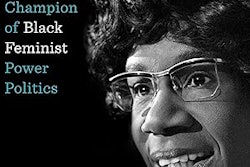When the elected representatives to the State Senate of Ohio followed the path of their equally narrow-minded colleagues in Texas and elsewhere and passed a legislative bill that effectively squelched support for diversity, equity and inclusion in the state’s universities, they probably assumed that the members of the governing body at the public flagship institution would quietly accept their misguided action. They were so wrong.
 Dr. William B. Harvey
Dr. William B. Harvey
To be more precise, Senate Bill 83 affects several important aspects of operations of both public and private institutions in Ohio beyond the DEI sphere. Fundamental areas of operation such as faculty workload, tenure, Board of Trustees appointments, curriculum requirements, campus speakers, and public opinion on controversial issues would also be impacted.
OSU is operating under very unusual circumstances because the university currently doesn’t have a president. The most recent former president, Dr. Kristina Johnson, left OSU in May and since there hasn’t been an interim president appointed to succeed her, the board is now managing the university. Board members’ responsibilities include not only determining and implementing institutional policy and practices but also, when appropriate, speaking out against intrusive, counterproductive legislative proposals such as Senate Bill 83. Unlike their counterparts in Florida and elsewhere, there were also presidents of public universities in Ohio who were brave and conscientious enough to state their dissatisfaction with the bill. Despite the clear risk of reprisal to his position to himself and his institution in the current political climate, Dr. Todd Diacon, president at Kent State University, also offered a full-throated objection to Senate Bill 83, when he emphasized the importance of being “fiercely committed” to access and diversity, and University of Cincinnati president Dr. Neville Pinto communicated with lawmakers to “get our perspective on the table.”
As The Ohio State University has evolved and expanded since its founding in 1870, the university has been vigilant about putting appropriate educational measures and practices in place to ensure that its students would receive a well-rounded education. However, the Ohio legislature, in its infinite wisdom, has expressed a preference for students to receive what might instead be called a round-about education – a university experience that circles around an accurate presentation of American history, politics, and culture to receive a whitewashed and sanitized version that ignores the significance of the negative effects that slavery, racism and discrimination have imprinted on the development and operation of this society. Unfortunately, the elimination of DEI offices and personnel will diminish or curtail services that not only help underserved individuals optimize their experiences in the universities, but it will also reduce opportunities for students and faculty from the majority culture to increase their knowledge of, and interactions with, peers and colleagues from underrepresented groups. Despite these anticipated negative outcomes, Senator Cirino makes the dubious and misguided claim that the legislation he has introduced is intended to “rescue higher education.”
Given the malicious nature of the anti-DEI legislation that has been produced, not only in Ohio but in other states around the nation as well, the passive response of several national higher organizations is concerning, to say the least. On the one hand, the American Association of University Professors, the Association of American Medical Colleges, the American Historical Association, and the American Sociological Association have issued public statements that condemn such legislation in no uncertain terms. However, several Washington-based membership associations that represent colleges and universities and the leaders of those institutions have been far less vocal and visible in contesting the onslaught of conservative bills that have been produced across the country.
The leaders who might be expected to step forward to defend and protect higher education seem to have faded into the background. It would be encouraging if they would heed the words of Bill Novelli, who writing in Fortune magazine to the business community, pointed out that “perhaps the most important reason why companies should step up to create and foster DEI goes beyond corporate walls and intermediate business goals. It’s about America itself.”
Dr. William B. Harvey serves as Distinguished Scholar at the American Association for Access, Equity and Diversity in Washington, DC.



















